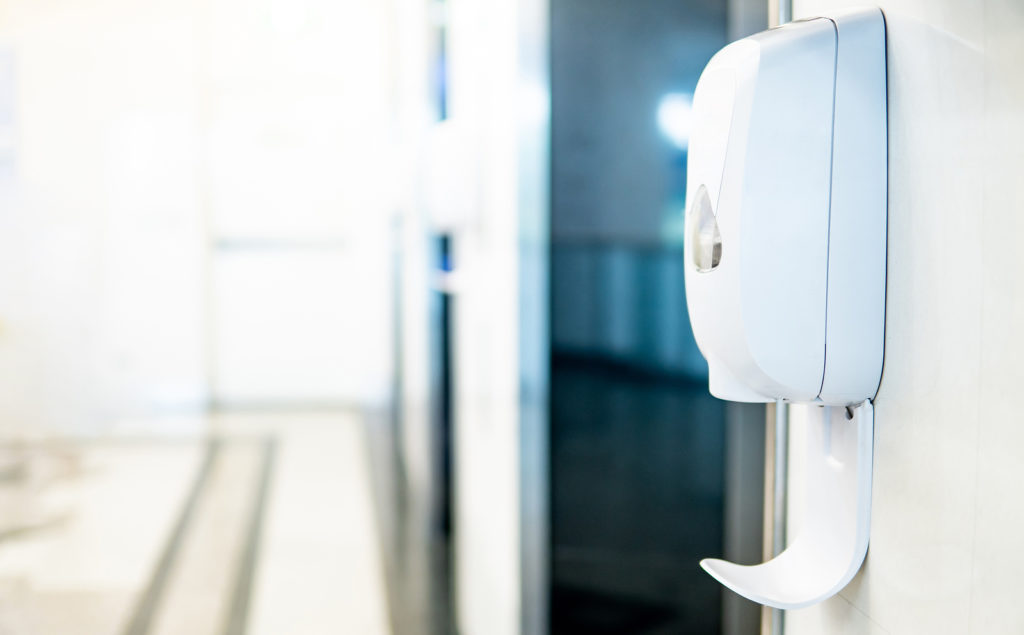With all the emerging new technology and innovative concepts for medical facility construction, healthcare proprietors face a long list of options in terms of design, space planning, post occupancy, and more. But one of the most important objectives for medical facility construction is to reduce illnesses that can spread easily from one person to another, especially antibiotic-resistant ones. As a result, medical facilities are opting for improved hospital design and construction this year; not just for the purpose of abating the spread of illness and promoting healthier, more hygienic healthcare environments for patients, guests, and staff, but also for more efficient operation and performance.
As a medical care facility proprietor, it is to your benefit to consider some of the most south-after and innovative healthcare construction trends rising in popularity. Continue below to review the top three for 2020, particularly.

Copper Surfaces
Copper is a highly-useful metal that is applied in various enterprises due to its valuable properties, such as ductility, malleability, and high thermal electrical conductivity, and much more. But copper also naturally retains extraordinary antimicrobial properties, which serve to kill harmful microorganisms, such as MRSA, E. coli, Staphylococcus, Clostridium difficile, influenza A virus, adenovirus, fungi, and even Legionnaires’ disease. More than 300 types of copper alloys are proven to kill over 99.9% of disease-causing bacteria, all within just two hours when regularly cleaned.
What does this mean for healthcare facilities? It means they can greatly benefit from incorporating copper surfaces into their facility’s design. Such surfaces to consider include countertops, bed rails, handrails, over-the-bed tables, sinks, faucets, doorknobs, toilet hardware, fitness and exercise equipment, and more. Copper alloys can even be blended with textiles to make antimicrobial fabric.
Touch-Free Tech
Another emerging innovative design approach for medical facilities is touch-free technology for germ-prone surfaces that are commonly found in restrooms, cafeterias, lobbies, waiting rooms, patient rooms, and more. Such technological applications include tough-free dispensers for soap, hand-sanitizer, and hand towels. Other touch-free applications can be used to open and close doors, make intercom calls, request emergency assistance, temperature controls, televisions, and more. Reducing the amount of surface contact in a public building also reduces the potential for cross-contamination, and thus, improves the safety of the medical facility environment.
Solar Energy
Most medical care facilities use forced air heat systems to keep indoor environments warm. However, such systems are notorious for collecting dust and allergens, and then distributing them throughout a building. Not only do forced heat systems recirculate dust and allergens, they can also spread germs and even grow mold. As a result, hospitals and clinics can suffer from poor indoor air quality, which not only triggers allergic reactions, but also complicates or worsens upper respiratory conditions. Worst of all, it can spread dangerous diseases like Legionnaire’s.
To reduce airborne illnesses and improve indoor air quality, many healthcare proprietors are asking about the benefits of incorporating passive solar heating elements. This approach may help to reduce the issues of airborne illness by combining the natural warmth of the sun with thermal mass technology and various structural design methods. Because the sun’s solar power is used to maintain a comfortable indoor environment, the need to control the internal air temperature directly is eliminated. Another benefit is solar energy applications is reduced utility bills, which means you can place more revenue back into your healthcare facility for the betterment of your patients and staff alike.
Modern Medical Facility Construction in Indianapolis
Call BAF Corporation at 317-253-0531 to learn more about modern healthcare facility construction and how it can benefit your office, hospital, or clinic. Our licensed and bonded Indianapolis general contractors provide full-service medical care building services in Indianapolis, and throughout Central Indiana. Whether your medical facility requires a basic renovation to keep up with the growing technologies in the medical care industry, or you are building a brand-new wing of a hospital, our commercial general contractors retain the skills, resources, and acute attention to detail to meet your specifications and exceed your expectations. Call our office today to discuss your commercial construction needs, today.

